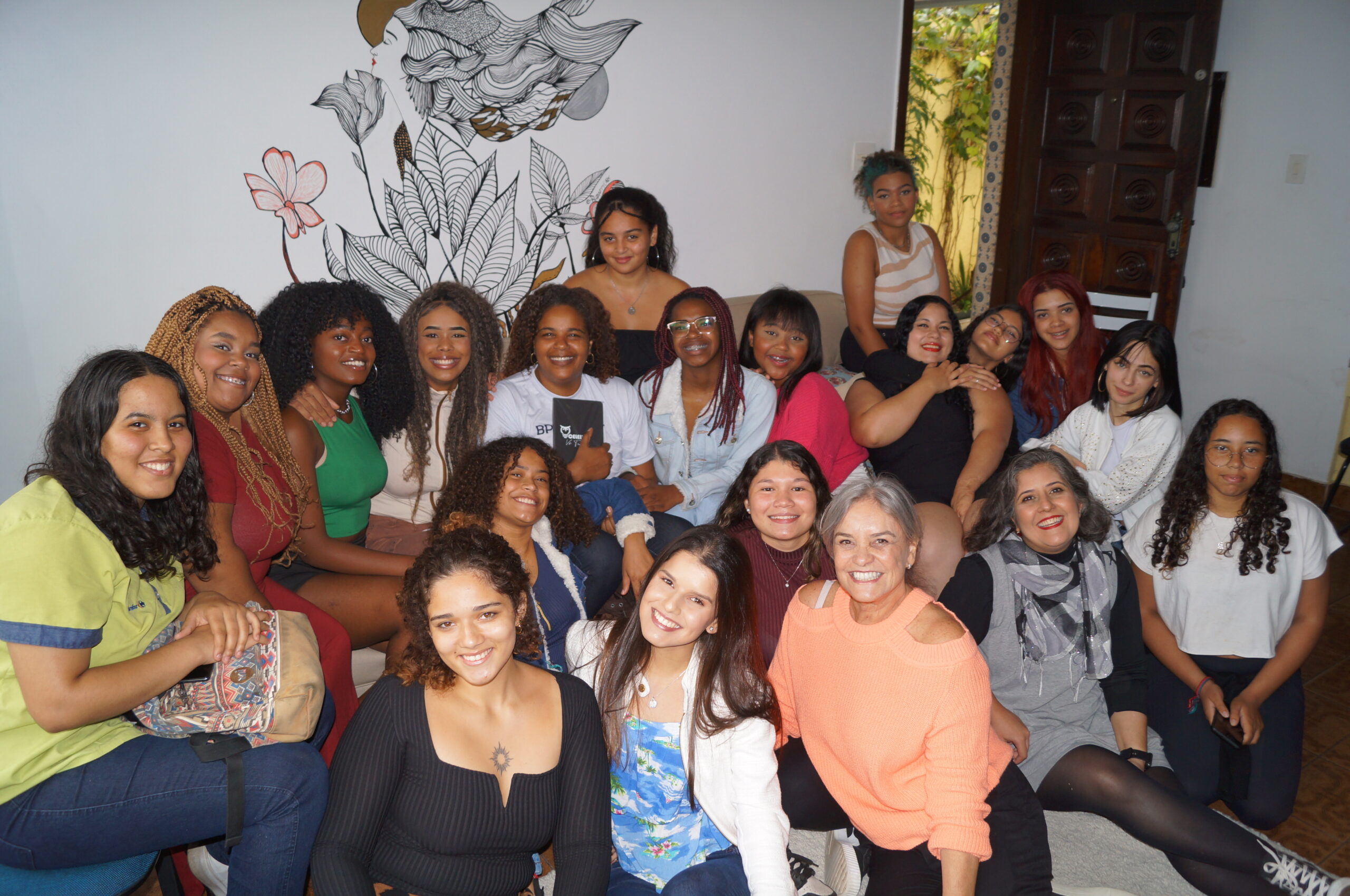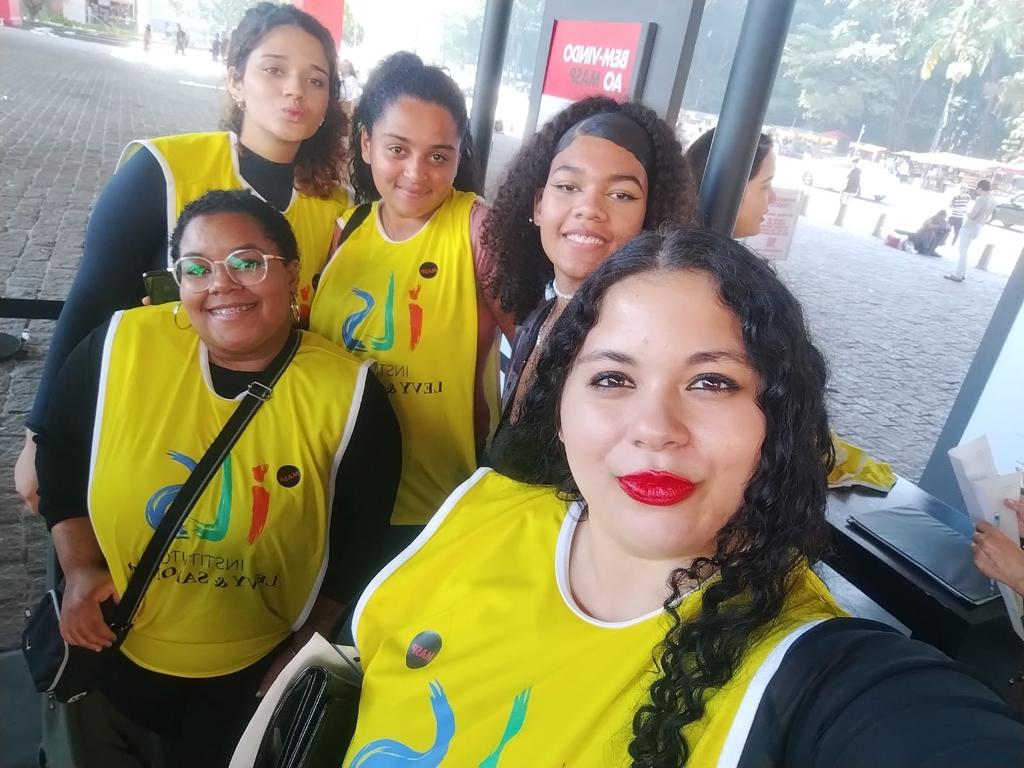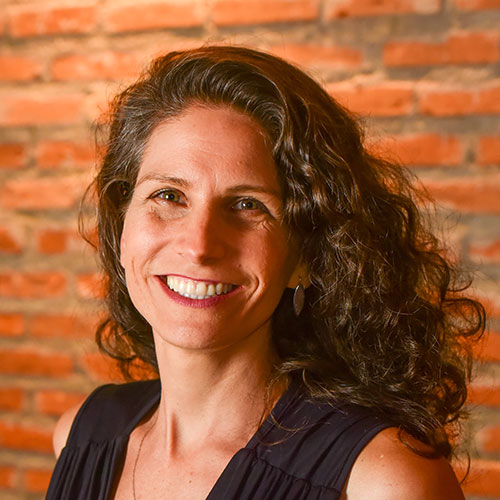Youth Republic of Celeiro Vó Tunica promotes autonomy and inclusion in the South of São Paulo
Zone of São Paulo Homes welcomes young women recently released from SAICAs and offers full individual support throughout their stay


Celeiro Vó Tunica is a civil society organization that offers free housing for young people aged 18 to 21 in socially vulnerable situations. The houses are in the format of a youth republic and especially welcome girls in the process of leaving the SAICAS, as shelters for children and adolescents in a situation of abandonment are called.
“At Celeiro Vó Tunica we don’t just provide housing, we welcome, train and care. Young women have access to higher education and many leave the republic with jobs. It’s a transformation in their lives”, says Djane Sant’Anna, the institution founder.
The OSC maintains 3 young republics, all in Chácara Santo Antônio, a middle-class neighborhood in the South of São Paulo’s capital. Each republic welcomes six young people at a time, serving 18 girls in total. To guarantee this result, work is carried out jointly by a team of volunteer professionals, which includes psychologists, teachers and mentors.
Individual Development Plan
To live in the young republics of Celeiro Vó Tunica, you must go through a selection process, through an interview. Upon joining, the young women prepare an Individual Development Plan and, with dedication and institutional support, are encouraged to achieve the stipulated objectives.
The plan is reviewed every six months and is adjusted to each person’s lifestyle. The houses have the complete structure of a private residence, including internet access and equipment such as washing machines and other appliances. A manager and a social worker work daily in the house. Young women also have access to medical and dental care.
“These girls have never had anyone asking if they have homework, if they will have a test tomorrow, if they have any work to do… We do this monitoring, as we do with our children”, says Djane.

South zone
For Djane, the fact that the Celeiro Vó Tunica republics are located in a middle-class neighborhood in the South zone of São Paulo guarantees the girls access to widespread public transport, facilitating their movement. The privileged location also allows young women who live in SAICAS in the region to stay at their family address.
Djane says, for example, that before founding the institution, together with her husband, they were a welcoming family for a girl, who ended up giving up living in a youth republic because there was no service nearby the shelter.
“In 2018, we became the godparents of a young girl through the Instituto Fazendo História. In this process, we began to live with the children of a SAICA and were chosen by a 17-year-old girl, but she ran away from the shelter before turning 18, because the shelter was in the Santo Amaro region and at that time, there were no nearby republics. She would be transferred to the East zone, but her entire reference was there: she worked at the Marketplace and studied at a school in the neighborhood.”
Youth Republic
The youth republic is part of a public policy aimed at young men and women with broken or extremely weakened family ties, who are in the process of leaving shelter institutions, without the possibility of returning to their family of origin or placement in a substitute family and who do not have the means to support themselves.
There is still no federal law that guarantees broad access to youth republics, since PL 1118/22, which deals with the issue, was only approved by the Senate in September 2022 and is now under analysis in the Chamber of Deputies. Even so, homes like these are already managed through agreements between local city halls and non-profit institutions.
According to IPEA‘s most recent report, in 2018 there were 30 units of this service throughout Brazil, located in 19 municipalities (in nine states and three regions). In São Paulo, there are currently 18 youth republics in agreement with the city hall.


Celeiro Vó Tunica
According to Djane Sant’Anna, the republics of Celeiro Vó Tunica do not have agreements with the city hall because this imposes some limits. “Without the city hall agreement, I can manage and select the young women,” she explains.
She highlights that the Celeiro Vó Tunica republics are looking for young people who really want to transform themselves: “You need to have determination, all the residents have to work, study, clean, there are always activities on Saturdays, so it requires effort, it’s a rhythm of discipline”, continues Djane.
The houses are maintained with sponsorship from companies and through donations. Supporting companies include Instituto Lévy e Salomão, Guy Carpenter, BMG Seguros and others. Partnerships are also made with companies such as Syngenta, Banco Alfa, Doutor 123, Uninove, etc.
“When we launched Celeiro, we had a cocktail party, invited friends and clients and asked who wanted to embark on this initiative with us. We created crowdfunding and today we have some companies that are supporters. And we continue to have a charity dinner, happy hour, raffle, bazaar, product sales… These are the resources we use”, she points out.
Invisible young people
Djane is a psychologist and has presided over her consultancy company linked to people development for over 30 years. She is the daughter of her grandmother Tunica, the name given to the institute in her honor. Djane remembers that affectionately sponsoring a girl who lived in a SAICA aroused a genuine concern that led to the founding of Celeiro Vó Tunica.
“It was quite distressing to live with my goddaughter and all the despair and anguish she carried. I had never stopped to think about what happened to the young people who lived in the SAICAs. What happened when that young man turned 18 and stopped being the responsibility of the State?”, he asks.
For the psychologist, this population is invisible, with life stories linked to abandonment and violence, who need to live with complex emotional issues. She recalls that in this context, many young people are harassed by organized crime and says that her own goddaughter became involved with a person who worked for drug trafficking and, as a result, they ended up losing contact.
“This created unrest, I had the feeling that I needed to do something. In 2019, my mother passed away and my father decided to divide the assets. With this resource and with the support of the manager of the SAICA that I attended, Helena, and Tereza, from accounting, we set up the OSC”, she recalls.
Autonomy and inclusion
English classes, reinforcement in Portuguese and Mathematics, as well as lectures, are part of the routine of the residents of Celeiro Vó Tunica. In addition to these activities, Celeiro also maintains partnerships with companies and universities and promotes education and financial management. Young women who work, for example, are encouraged to save 50% of their salary, to ensure sustainability when they leave the republic.
The lectures are part of the Programa Mulher e Ponto and cover topics on mental health, women’s reproductive health, sexual violence, qualification for the job market, among others. The Celeiro also guarantees broad access to contraceptive methods so that girls do not become pregnant during this process of individual development.
“The word that defines us is this work in the singular. We profoundly transform the lives of 18 girls at a time. Here we have young people studying business administration, social services, insurance management, economics and human resources. This year, one of the young women who completed the cycle at Celeiro, left with an apartment purchased, studying architecture, with a CLT work. The other is working at Hospital Einstein, so we see that each one has found her own path”, says Djane proudly.


Want to support this cause?
Celeiro Vó Tunica has the Donate, Management and Transparency seal. Donations can be made by PIX: CNPJ: 35.785.861/0001-07.
The OSC also works with volunteers. To find out more, visit the website or follow social media on Instagram and LinkedIn.



